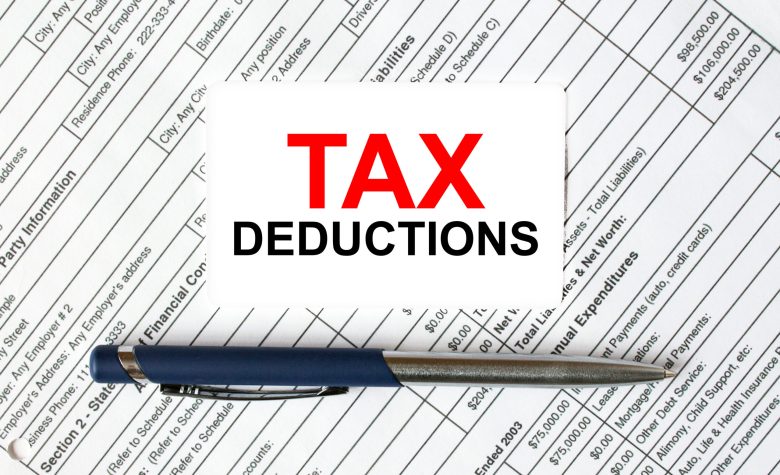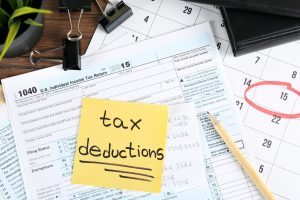Taxes are a critical responsibility for every small business owner, yet they can also feel overwhelming. The good news? There are numerous deductions that small business owners can claim to significantly reduce their taxable income. These deductions can help businesses save money, reinvest in growth, and remain financially healthy. This guide will help you understand some of the most valuable tax deductions available to small businesses. By claiming these deductions, you can optimize your tax strategy and ensure you’re not leaving money on the table.
Home Office Deduction
Many small business owners run their operations from the comfort of their homes. If you use a dedicated space in your home solely for business purposes, you might qualify for the home office deduction. This deduction includes costs related to maintaining your workspace, such as mortgage interest, rent, utility bills, maintenance, and property taxes. The IRS allows you to calculate this deduction using two methods: the simplified method, which is a flat rate of $5 per square foot up to 300 square feet, or the regular method, which relies on actual expenses based on the percentage of your home used for business. Make sure your home office meets the necessary requirements to qualify, and keep accurate records to back up your claim.
Deduction for Business Expenses
Everyday business expenses, also known as ordinary and necessary expenses, can also lower your taxable income. These expenses include advertising, office supplies, travel expenses, salaries paid to employees, professional fees, software subscriptions, and rental costs for office space. For most of these expenditures, you can deduct the full amount as long as they are directly related to your business operations. Be diligent in tracking receipts and maintaining detailed records to ensure your expenses qualify under IRS guidelines. Leveraging this deduction can be a significant way to reduce your tax bill.
Deduction for Car and Truck Expenses
If you use your personal vehicle for business purposes, you’re eligible to deduct the associated costs. This can include mileage, fuel, insurance, repairs, and even depreciation. Similar to the home office deduction, you have two methods for calculating car and truck expenses. The standard mileage rate simplifies things by allowing you to deduct a flat rate per mile driven for business purposes—a rate determined annually by the IRS. Alternatively, using the actual expense method allows you to track and calculate deductions based on the exact costs related to business use. Accurate and detailed mileage logs are critical in both cases to substantiate these deductions.
Deduction for Depreciation
Small business owners who purchase assets such as equipment, furniture, or property can benefit from the depreciation deduction. This deduction allows you to recover the cost of qualifying assets over their useful life, reducing your taxable income in the process. Depreciation applies to tangible and intangible assets, and you can often choose different methods to calculate it, such as straight-line or accelerated depreciation. Additionally, Section 179 expensing and bonus depreciation allow you to claim larger portions of asset costs upfront in some cases. Consult a tax professional to determine the best strategy for claiming depreciation to maximize your tax benefits.
Deduction for Insurance Expenses
Insurance is a necessary cost of doing business, and many types of business-related insurance premiums are deductible. These include health insurance plans for you and your employees, general liability insurance, property insurance, business interruption insurance, and even workers’ compensation insurance. The cost of these premiums can reduce your taxable income, providing relief for one of the most significant expenses small businesses face. If you’re self-employed and pay for your own health insurance, you may also be able to deduct this cost as an adjustment to income, further lowering your tax burden.
Deduction for Retirement Plans
Offering retirement plans, such as a 401(k) or SEP IRA, is a great way for small business owners to attract and retain talent while also enjoying tax advantages. Contributions made to employee retirement plans are deductible for the business, and self-employed owners may also contribute to their own plans and deduct those contributions. Additionally, you may qualify for the Retirement Plans Startup Costs Credit, which helps offset the expenses of setting up a new retirement plan. This deduction not only provides immediate financial benefits but also supports long-term financial health for you and your employees.
Deduction for Startup Costs
Launching a business comes with its own set of expenses, many of which are deductible. These startup costs include expenses incurred before your business officially begins operations, such as market research, legal and accounting fees, training costs, and equipment purchases. The IRS allows small businesses to deduct up to $5,000 in startup expenses and $5,000 in organizational expenses if total startup costs are $50,000 or less. Any costs that exceed this threshold can typically be amortized over a 15-year period. Staying organized and documenting all expenses during the early stages of your business is key to taking full advantage of this deduction.
Deduction for Bad Debts
Bad debts, or money owed to your business that you are unable to collect, can be a tax-deductible expense. This can include losses from loans to clients, credit sales that go unpaid, or loans to business partners. However, only debts directly related to your business qualify, and you must demonstrate that you’ve made efforts to collect the debt before claiming it as a deduction. While no one likes dealing with unpaid debts, this deduction can help small business owners recoup some of the losses and mitigate the financial impact.
Maximize Your Tax Deductions with Expert Guidance
Navigating tax deductions as a small business owner can be overwhelming, but understanding these key deductions can help you make the most of your tax returns. Whether it’s claiming the home office deduction, leveraging depreciation, or contributing to retirement plans, small business tax deductions offer countless opportunities to reallocate funds and grow your business. To get the most accurate advice tailored to your unique situation, consult with a tax professional who can help you identify every deduction you’re eligible for.
Tax savings start with being informed. Take the time to organize your records, stay proactive, and make deductions work in your favor. With a thoughtful strategy, you’ll not only minimize your tax liability but also keep your business thriving year after year.
FAQs
1. What records should I keep for tax deductions?
Keeping detailed records is essential to substantiate your deductions. This includes receipts, invoices, contracts, mileage logs, and bank statements, as well as proof of payments.
2. Can I deduct both home office expenses and office rent?
No, you cannot deduct both. If you have a separate office space, the associated expenses will qualify instead of a home office deduction.
3. Are meals and entertainment expenses still deductible?
Business meals may be partially deductible (usually 50%) if they are directly related to your work. However, entertainment expenses are generally not deductible under current tax laws.
4. Can I write off 100% of my vehicle expenses?
You can only deduct the portion of vehicle expenses that are attributable to business use. The IRS requires accurate records to back your claims.
5. What is the difference between deductions and tax credits?
A deduction reduces your taxable income, while a tax credit directly reduces the amount of tax you owe. Both are valuable tools for lowering your tax liability.




